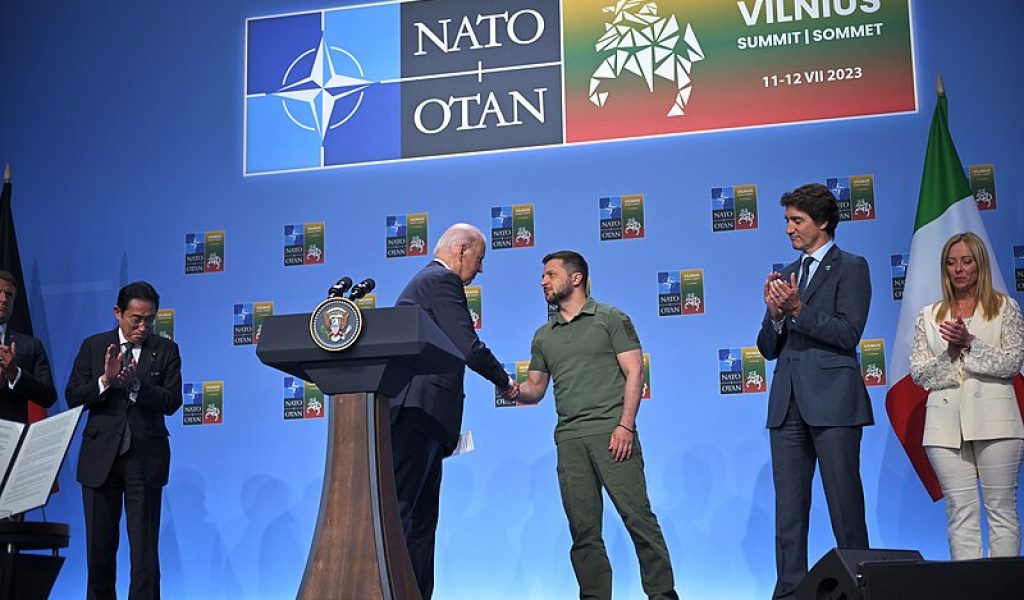Turkish perspective on the NATO summit

Ibrahim Melih Polat writes about the reluctance of Turkey to support Sweden in joining NATO.
The NATO summit happened on the 11th and 12th of July in Lithuania and its main focus was to discuss essential issues, such as Sweden’s membership in NATO and the Ukraine-Russia war. Summarising how the meeting resulted for Ukraine, the country’s hope to acquire a membership has not been specified. Some concerns were that Ukraine’s inclusion in NATO would provoke Russia and possibly expand the war’s dimension. NATO allies stated that they would pursue military and financial support for Ukraine.
Another substantial topic was the participation of Sweden in NATO. Turkey has been preventing Sweden from becoming a NATO member because Sweden is sheltering supporters of the PKK and FETÖ. The PKK is classified as a terrorist organization by Turkey, the European Union, and the United States, and FETÖ is also recognized as a terrorist organisation only in Turkey. During Sweden’s joining discussion, Turkey demanded that Sweden takes action against these two groups. However, Sweden was reluctant to take steps regarding these issues. Following that, Quran-burning protests in front of the Turkish and Iraq embassies triggered the escalation and raised concerns about the attitude of Turkey regarding Sweden joining NATO.
Nonetheless, on the 11th of July, John Stoltenberg, the NATO chief, announced that Sweden and Turkey came to terms with the question of Sweden. In the first stage, it was shocking for the Turkish public because a week before the summit, Erdogan said, “Türkiye will not lift its opposition to Sweden joining NATO unless it stops harbouring groups Ankara considers to be terrorists.” It raised questions about what changed Erdogan’s position in a week. Fatih Altaylı, an esteemed Turkish journalist, expressed on his Youtube channel that Erdogan’s abrupt decision changing was unsurprising for NATO members. He states that despite Erdogan’s opposition, NATO allies were confident in their participation because of Turkey’s severe financial crisis, and he interprets that from his conversations with former NATO diplomats and politicians, Turkey’s dissent was not a massive problem for them. In the same vein, the country could not confront its Western allies during this drastic economic crisis due to potential direct investments based on the Western block.
Quran-burning protests in front of the Turkish and Iraq embassies triggered the escalation and raised concerns about the attitude of Turkey regarding Sweden joining NATO.
Another point that John Stoltenberg stated is that in return for the support for Sweden’s joint, Sweden would revive Turkey’s quest for EU membership. Following that, according to official NATO papers, Sweden expressed that “Sweden reiterates that it will not provide support to YPG/PYD, and the organisation described as FETÖ”. Also, Joe Biden declared that the US enlarge Turkey’s EU membership. These statements created excitement among the Turkish public, and some quarters interpreted them as explicit support for Turkey’s EU case.
Nonetheless, on the 11th of July, John Stoltenberg, the NATO chief, announced that Sweden and Turkey came to terms with the question of Sweden.
Another aspect is that, despite Erdogan’s agreement with Sweden’s joint, the Turkish parliament will give the eventual decision. It is crucial because, on paper, Erdogan and his party AKP came to power alone in the last election in May; however, defacto AKP formed a coalition with right-wing parties. For instance, HUDA-PAR, MHP, YRP, and BBP are components of the AKP’s people alliance. HUDA-PAR and YRP are known for their Islamist position, following that MHP and BBP represent a nationalist fraction of the coalition. Under these circumstances, it is intriguing whether parliament will accept Sweden’s joint or not, particularly Quran burnings and Sweden’s close settlement with PKK, which possibly will invoke dissatisfaction on the People’s Alliance components.


